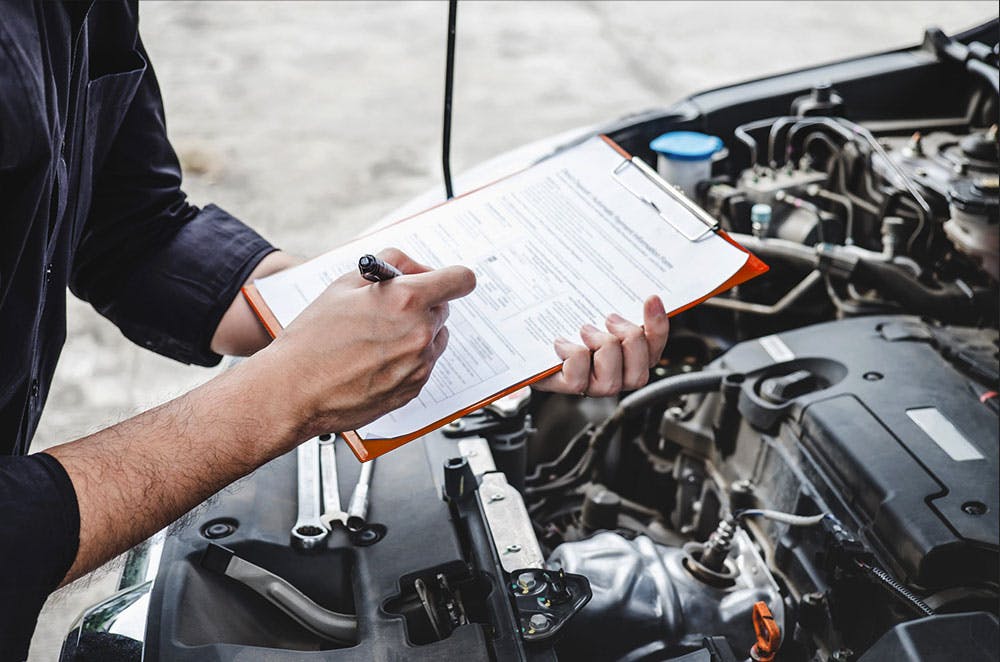All Categories
Featured
Table of Contents
- – 1. Arrange Normal Oil Adjustments.
- – 2. Display Tire Stress and Revolve Tires.
- – 3. Inspect and Replace Wiper Blades.
- – 4. Inspect Fluid Degrees Routinely.
- – 5. Examination and Change Your Battery as Needed.
- – 6. Evaluate Brake Pads and Rotors.
- – 7. Change Air Filters Consistently.
- – 8. Watch on Lights and Signals.
- – 9. Safeguard the Paint and Outside.
- – 10. Stay with an Upkeep Arrange.
- – Verdict.

Regular automobile maintenance is necessary for every chauffeur, ensuring that your car runs smoothly, safely, and efficiently. By routinely examining your lorry's vital systems, you can protect against expensive repair work and prevent unforeseen breakdowns. Below are some necessary car upkeep suggestions every driver must know.
1. Arrange Normal Oil Adjustments.
One of the most essential elements of auto maintenance is changing your oil routinely. Most cars and trucks need an oil adjustment every 5,000 to 7,500 miles, yet you need to examine your proprietor's handbook for specific suggestions.2. Display Tire Stress and Revolve Tires.
Low tire pressure can lead to inadequate gas economy, irregular tire wear, and even blowouts. Additionally, revolving your tires every 6,000 to 8,000 miles assists distribute wear equally, extending the life of your tires and enhancing general handling.3. Inspect and Replace Wiper Blades.
Wiper blades are very easy to overlook, but they are vital for risk-free driving in negative climate. With time, wipers end up being less efficient, triggering touches that lower visibility. Replace your wiper blades every six months or sooner if you observe they're no longer clearing your windshield effectively. Quality wipers ensure much better presence, specifically during rainfall and snow.4. Inspect Fluid Degrees Routinely.
Your automobile uses a number of liquids to function efficiently, including coolant, brake fluid, power steering fluid, and transmission liquid. Unclean or low fluids can cause concerns like getting too hot, poor stopping, and problem guiding. Check liquid degrees on a regular basis, and consult your owner's guidebook to recognize when they must be changed or completed. Maintaining appropriate fluid degrees is critical for stopping break downs and prolonging your vehicle's life expectancy.5. Examination and Change Your Battery as Needed.
The battery powers your cars and truck's electric components and ensures reliable starts. Extreme climate conditions can shorten a battery's life-span, so it is very important to examine it on a regular basis, specifically if it's over three years of ages. If needed, look for indicators of rust and clean the battery terminals. Many auto shops use totally free battery testing, which can be helpful if you observe dark lights or slow-moving starts.6. Evaluate Brake Pads and Rotors.
If you hear squeaking, grinding, or observe a longer stopping range, it's time to have your brakes checked. Numerous chauffeurs find it helpful to have actually brakes examined during regular tire turnings or various other scheduled maintenance.7. Change Air Filters Consistently.
Air filters avoid dirt, particles, and other contaminants from entering your engine and cabin. A clogged engine air filter can affect your auto's efficiency and gas economy, while a clogged up cabin air filter minimizes air top quality inside the lorry. Change the engine air filter every 15,000 to 30,000 miles, and inspect your cabin filter at least annually.8. Watch on Lights and Signals.
Fronts lights, brake lights, and transform signals are vital for visibility and interaction on the road. Consistently inspect these lights to ensure they are functioning appropriately. Changing a bulb is generally fast and economical, but it's crucial to prevent driving with damaged or dark lights, which can compromise safety and security and cause tickets.9. Safeguard the Paint and Outside.
Routinely washing and waxing your automobile is greater than just an aesthetic measure; it protects the paint from dirt, salt, bird droppings, and UV rays. Over time, these components can damage your car's paint and result in corrosion. Waxing your automobile every couple of months offers a protective layer that helps maintain its look and worth.10. Stay with an Upkeep Arrange.
Your automobile's handbook provides a maintenance routine tailored to your car's needs. Following this schedule helps maintain your vehicle in peak condition and addresses possible concerns early. Routine exams, including tune-ups and evaluations by a professional, allow you to recognize and settle small issues before they end up being significant expenditures.Verdict.
Maintaining your automobile doesn't need to be made complex or lengthy, yet it's crucial for keeping it secure, dependable, and efficient. By complying with these pointers and remaining aggressive with your automobile's upkeep, you'll take pleasure in a smoother experience, less unforeseen problems, and potentially higher resale value. Make normal upkeep a top priority, and you'll gain the advantages every time you hit the trail.Table of Contents
- – 1. Arrange Normal Oil Adjustments.
- – 2. Display Tire Stress and Revolve Tires.
- – 3. Inspect and Replace Wiper Blades.
- – 4. Inspect Fluid Degrees Routinely.
- – 5. Examination and Change Your Battery as Needed.
- – 6. Evaluate Brake Pads and Rotors.
- – 7. Change Air Filters Consistently.
- – 8. Watch on Lights and Signals.
- – 9. Safeguard the Paint and Outside.
- – 10. Stay with an Upkeep Arrange.
- – Verdict.
Latest Posts
Practical Beauty for every single Home
Published Apr 20, 25
1 min read
The Perfect Flooring for Every Home
Published Apr 20, 25
1 min read
Smooth Floor Covering Installment-- The Carpet Interiors Floor & Home Way
Published Apr 20, 25
2 min read
More
Latest Posts
Practical Beauty for every single Home
Published Apr 20, 25
1 min read
The Perfect Flooring for Every Home
Published Apr 20, 25
1 min read
Smooth Floor Covering Installment-- The Carpet Interiors Floor & Home Way
Published Apr 20, 25
2 min read